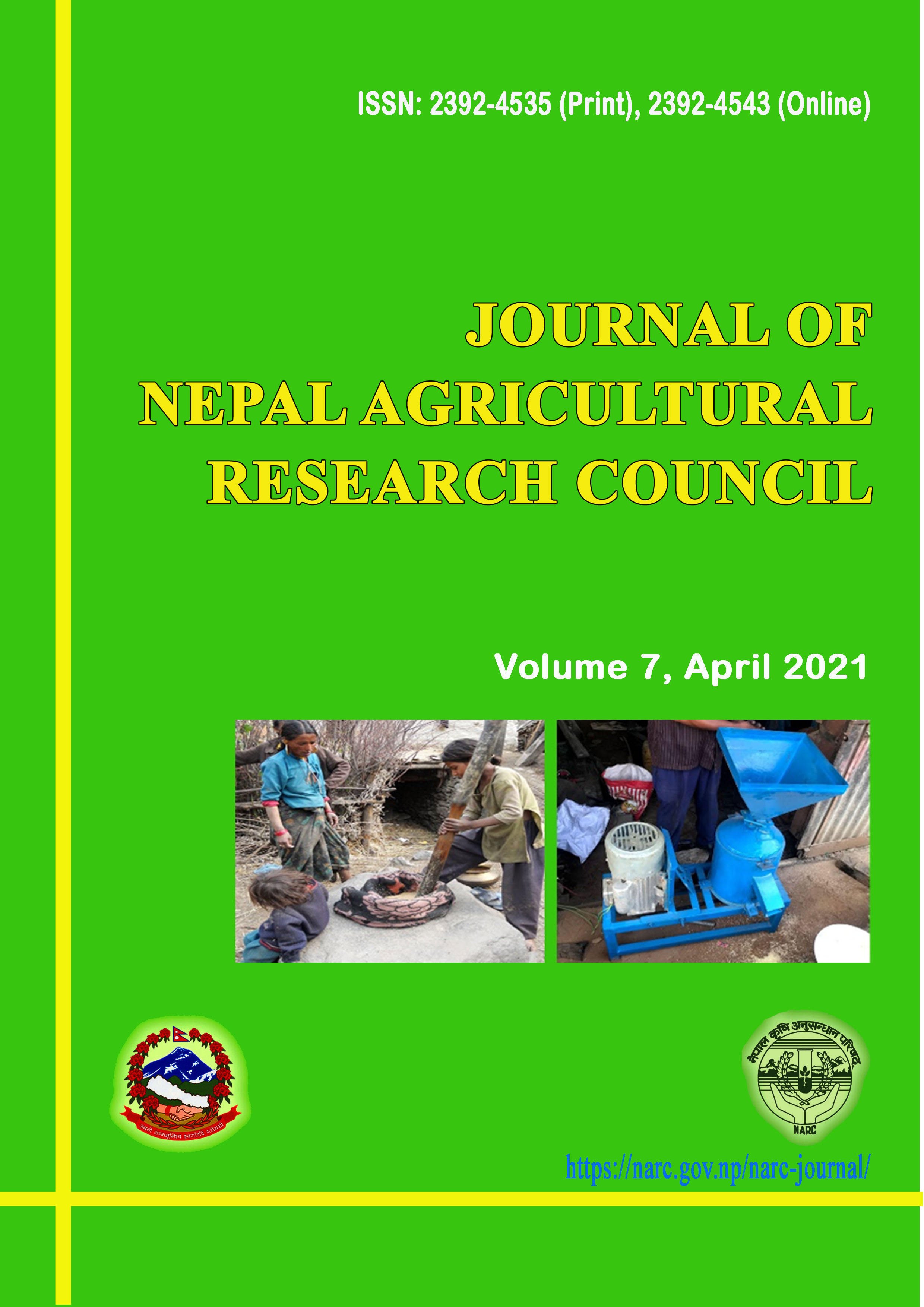Characterization of Gladiolus Genotypes under Khumaltar Condition of Nepal
DOI:
https://doi.org/10.3126/jnarc.v7i1.36915Keywords:
Corm and Cormels, Gladiolus, Spike and Rachis length, UnfurlingAbstract
Seven promising genotypes of Gladiolus were experimented during the two consecutive years of 2014/15 and 2015/16 in the field of Horticulture Research Division, Khumaltar, Lalitpur (1332 masl) to evaluate the performances of their vegetative, floral and corm characteristics. The experiment was laid out in Randomized Complete Block Design with four replications. The treatments consisted of seven genotypes (ARSDG-01, ARSDG-02, ARSDG-03, ARSDG-04, ARSDG-05, ARSDG-06 and ARSDG-07). Fifty-four corms of each genotype were planted in the crop geometry of 25 x 25 cm. A total of sixteen characters were observed. The pooled results of two years data indicated significantly different except plant height, spike length, rachis length, number of cormels per mother corm and individual corm weight due to the effects of seven evaluated genotypes. Genotype ARSDG-04 was proven as the earliest one for days to the first spike emergence (73.00 days), the full spike emergence (76.50 days) and the first unfurling of florets (83 days). In contrast, ARSDG-01 and ARSDG-06 were late genotypes for the same three characters. The number of florets/spikes was considerably high in two genotypes viz., ARSDG-06 (21.00) and ARSDG-03 (20.50). The number of daughter corms/mother corm was significantly high in ARSDG-05 (3.10) and ARSDG-04 (2.92) whereas it was minimally low in ARSDG-02 (1.66) and ARSDG-07 (1.69). Summing up all sixteen characters of evaluated genotypes, ARSDG-04 as the first, ARSDG-05 as the second and ARSDG-03 as the third have respectively emerged as superior ones as opposed by those of the rest of evaluated genotypes of Gladiolus.
Downloads
Downloads
Published
How to Cite
Issue
Section
License
This license enables reusers to distribute, remix, adapt, and build upon the material in any medium or format for noncommercial purposes only, and only so long as attribution is given to the creator.




